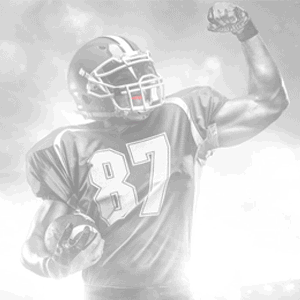The Playoff Push: What’s The Cost Of Playing Through An Injury?

Entering Game 7 of their first round series against the Golden State Warriors, the L.A. Clippers were almost without their star point guard, Chris Paul. Paul was significantly hampered in the team’s Game 6 loss due to both a hamstring injury and an injured thumb.
When asked whether he’d play or not in the deciding game, Paul said: “I’m all good. I’ll be there. I’ll be ready. I can’t wait.” Of course he played; it was a deciding Game 7, and this Clippers team seems like Paul’s best chance at finally winning a championship — ownership issues aside.
But should he have played? It seems like a silly question: he’s arguably the best point guard in the NBA and his team’s best player; it’s his team’s biggest game of the season, on the biggest stage; and, like all professional athletes, he is paid handsomely to play, whether he’s 100% healthy or not.
However, that still doesn’t make it necessarily the right choice.
When it comes to the playoffs — when a championship is within reach — it’s extremely hard for athletes, particularly star players, to sit out with an injury; especially an injury they may theoretically be able to play through. Whether it’s a professional championship, a high school playoff tournament or an intramural league title, athletes want to win at all costs. But sometimes those costs have long-lasting effects on a player’s career and life.
While an athlete may only get one chance in their career to win the big one, sacrificing their body to achieve the ultimate prize may be detrimental in the grand scheme of things. Just take a look at retired NFL players; forgetting the concussion issue for a second, how many ex-football players have issues walking or using their hands?
Joint pain, arthritis and immobility are far too common among retired athletes, as that pain and deterioration builds up over time. It’s caused by compounding injuries, minor and major, worsened by injuries that don’t heal properly and exasperated by ill-fitting equipment and lack of protection.
And you don’t have to be a professional athlete to experience those lifelong effects of sports injuries — simply ask any runner or pick-up basketball player over 40 with knee and ankle problems.
Of course players want to be on the field, court or ice as much as possible during a playoff run; they want to contribute to a winning team and feel the highs that come with a championship run. And as a coach or athletic trainer, you undoubtedly want your best players out there on the field, court or ice when a title is on the line. But playing through injury takes a major toll, and players often hide those injuries to remain in the game.
That’s why year-after-year, when the NFL, NHL, NBA and MLB playoffs come to an end, lists of athletes in need of offseason surgery come out, even though those players never appeared on an injury report during the second season. Those small ankle tweaks and hip pointers fester and get worse when they’re not properly treated.
Players may be able to minimize the impact of injuries by wearing the right equipment — equipment that fits properly — and reduce the wear-and-tear of a long season with the correct preseason training; but come playoff time, all bets are off. Athletes are naturally competitive people and that competitiveness has the ability to push the pain threshold to new heights.
Yet, when athletes play through pain and put off treatment to help their team they hurt themselves. But that’s the cost of winning right?
If the Clippers win the NBA championship this June, Chris Paul will likely look at his ring every time his thumb aches and smile. But he’ll almost definitely be wincing as well.
Reduce your chances of having to play through pain during the playoffs with Gladiator Custom Mouthguards, the industry-leader in custom mouthguards.






